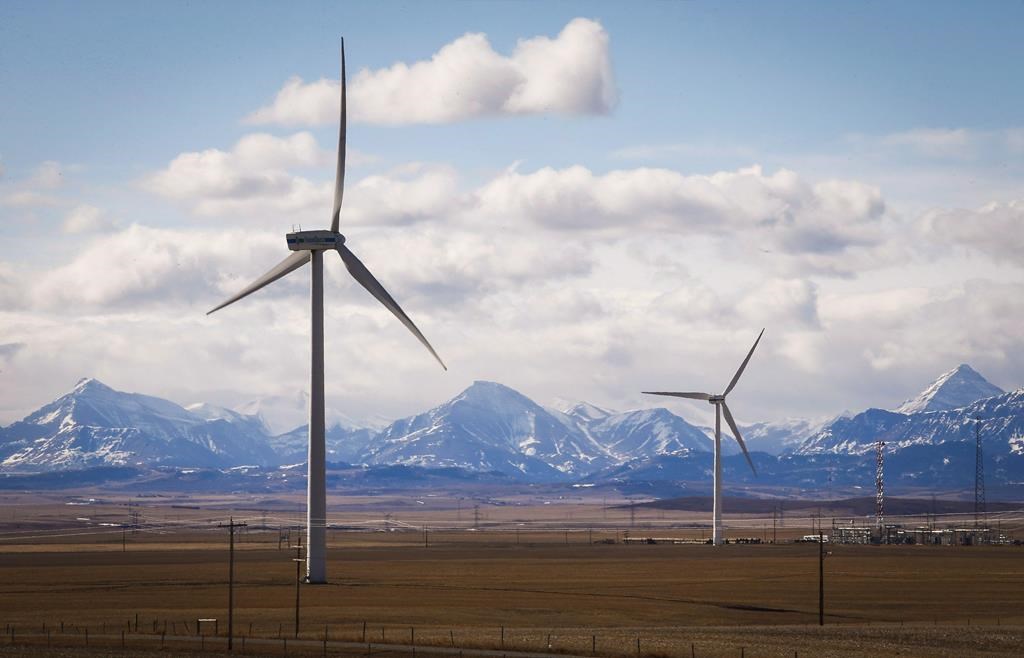
A major Alberta utility has cancelled a large wind power project in response to new government rules on where such developments can be built.
TransAlta CEO John Kousinioris said Friday the 300-megawatt Riplinger project near Cardston in southern Alberta will no longer proceed.
“We’ve reassessed our growth plans in the province,” he said in a conference call to analysts.
“(The project) has been impacted by the new restrictions on development near protected areas and pristine viewscapes and will not be advanced. The project has been removed from our growth pipeline.”
TransAlta is also to put three other developments on hold, as the government goes through a redesign of the province’s electricity market.
The 100-megawatt Tempest wind project south of Lethbridge is affected by that delay, as is the gas-fired, 44-megawatt Pinnacle generator west of Edmonton and the 180-megawatt WaterCharger battery storage facility near Cochrane.
“They have been placed on hold until we receive sufficient clarity,” Kousinioris said.
In February, the United Conservative Party government announced new rules on the development of renewable power in the province. They impose a new 35-kilometre buffer zone around protected areas and what the government calls “pristine viewscapes.”
Riplinger would have been about 45 kilometres by road from Waterton National Park and about 55 kilometres from Beauvais Lake Provincial Park.
Kousinioris said the Riplinger project would have been on the edge of an exclusion zone.
The rules followed a seven-month moratorium on renewable energy approvals after the government decided the industry was growing too quickly, threatening agriculture and marring Alberta’s landscape.
Analysts disputed the need for those restrictions, saying renewable energy is well down on the list of threats to farmland.
It’s the second setback this week for low-carbon energy generation in Alberta.
Electricity generator Capital Power announced Wednesday it would cancel plans for a $2.4-billion carbon capture and storage project for its natural gas facility near Edmonton.
CEO Avik Dey said the cost of the project was too high and the regulatory environment around it too uncertain to justify going ahead.